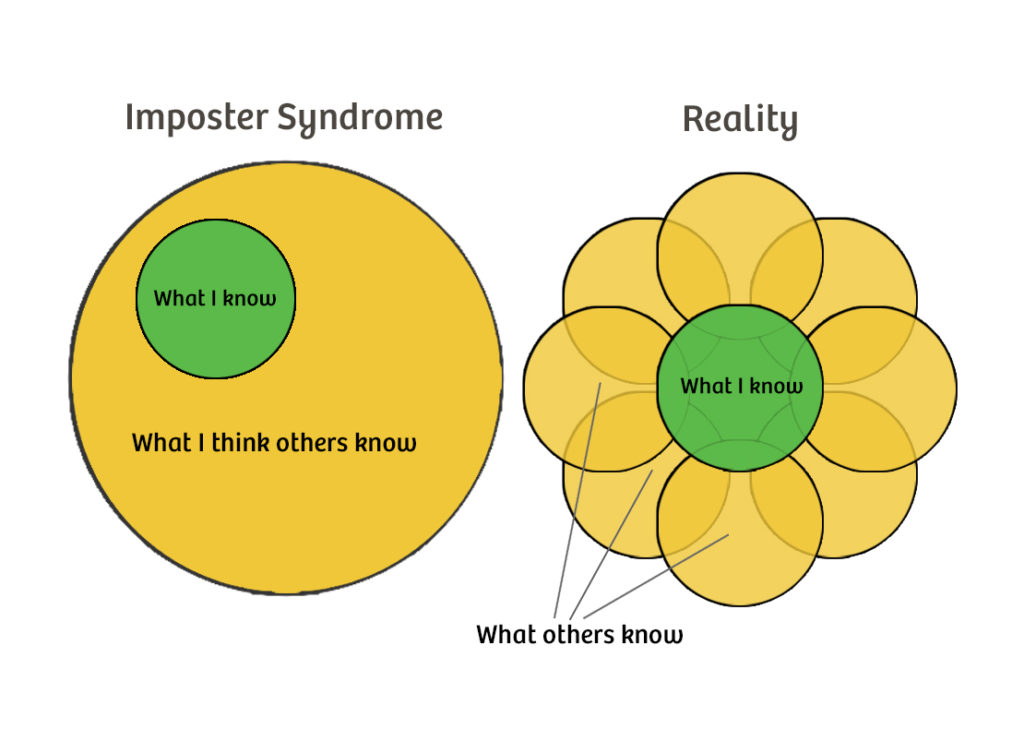What It Is:
Imposter Syndrome is a psychological phenomenon where individuals doubt their accomplishments, have a persistent fear of being exposed as a fraud, and believe that they don’t deserve the success or recognition they have achieved. Despite external evidence of their competence, individuals experiencing imposter syndrome attribute their success to luck or believe that others overestimate their abilities.
Origin of Imposter Syndrome: The term “Imposter Syndrome” was first introduced by psychologists Dr. Pauline R. Clance and Dr. Suzanne A. Imes in their 1978 paper titled “The Impostor Phenomenon in High Achieving Women: Dynamics and Therapeutic Intervention.” The researchers initially studied the phenomenon in high-achieving women but later found it to be prevalent across genders and various fields.
How to Use It:
Using Imposter Syndrome in Agile Coaching:
- Creating a Supportive Environment:
- Recognize that imposter syndrome can affect individuals in your Agile software delivery team. Create a supportive environment where team members feel comfortable expressing their concerns and doubts without fear of judgment.
- Individual Coaching and Mentorship:
- Offer individual coaching or mentorship to team members who may be struggling with imposter syndrome. Providing a space for open discussions and offering guidance can help individuals gain perspective on their achievements.
- Acknowledging Achievements:
- Celebrate individual and team achievements regularly. Publicly acknowledging and appreciating the contributions of team members can help combat imposter syndrome by reinforcing a positive narrative about their abilities.
- Setting Realistic Expectations:
- Help team members set realistic expectations for themselves. Imposter syndrome often arises from perfectionist tendencies. Encourage a focus on continuous improvement rather than unattainable perfection.
Addressing imposter syndrome in an Agile software delivery team involves fostering a culture of support, recognition, and realistic expectations. By acknowledging the psychological challenges team members may face, Agile coaches can contribute to a healthier and more resilient team dynamic.
References:
- Research Papers and Books:
- Explore research papers and books on imposter syndrome, including Dr. Pauline R. Clance’s and Dr. Suzanne A. Imes’s original work. Additional publications provide insights into the psychological aspects of imposter syndrome.
- Clance, P.R.; Imes, S.A. (1978). “The imposter phenomenon in high achieving women: dynamics and therapeutic intervention.”. Psychotherapy: Theory, Research and Practice. 15 (3): 241–247. 10.1037/h0086006
- Explore research papers and books on imposter syndrome, including Dr. Pauline R. Clance’s and Dr. Suzanne A. Imes’s original work. Additional publications provide insights into the psychological aspects of imposter syndrome.
- Online Courses and Workshops:
- Many online platforms offer courses and workshops on imposter syndrome, providing practical strategies and tools for overcoming self-doubt. These resources can be beneficial for both individuals and coaches.
- Psychology and Mental Health Resources:
- Resources related to psychology, mental health, and self-esteem can provide valuable insights into understanding and addressing imposter syndrome. Books and articles by psychologists specializing in these areas may offer practical advice.
- Coaching and Leadership Blogs:
- Explore blogs and articles written by coaching and leadership experts. Many professionals share their experiences with imposter syndrome and offer guidance on building confidence and resilience.
- Community Support:
- Engage with communities and forums where individuals share their experiences with imposter syndrome. Connecting with others who have faced similar challenges can provide a sense of solidarity and shared strategies for coping. (I started my own meetup and saw this point as a huuuge benefit!)
Visit the Agile Coach’s Toolkit for more definitions, models, theorems and stuff.

